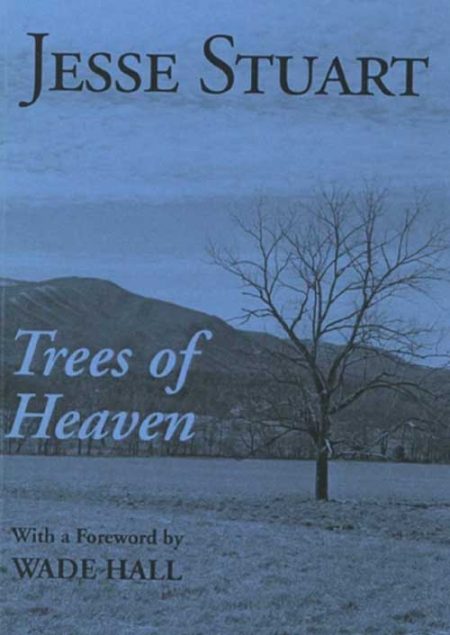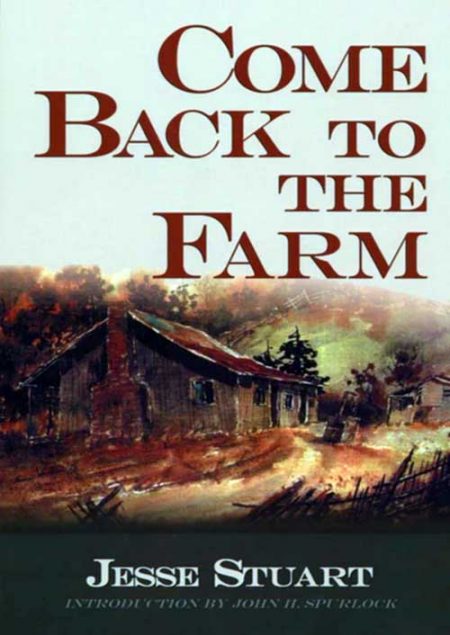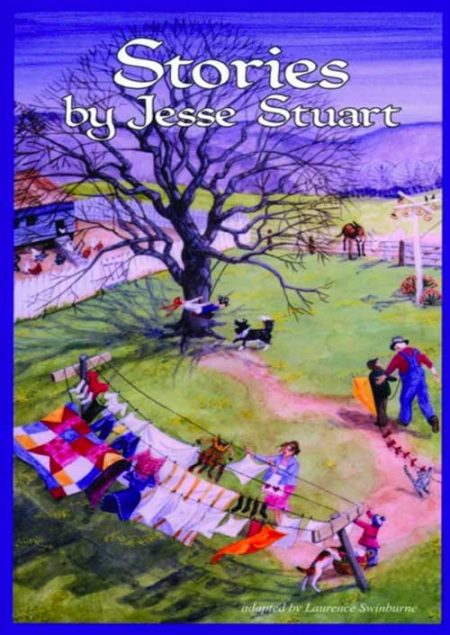-
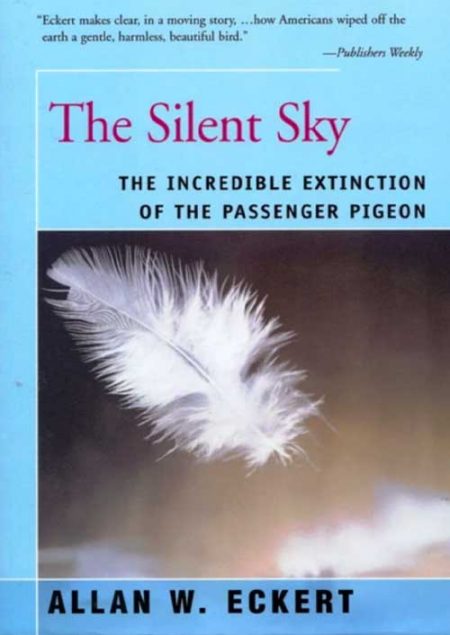 This nature novel, by following the hatching and lifetime experiences of the last know wild passenger pigeon, chronicles the life, natural history, and ultimate extinction of this species which was once the most abundant bird species in North America. The last wild bird was killed in 1900; the last captive bird died in 1914. By Allan Eckert
This nature novel, by following the hatching and lifetime experiences of the last know wild passenger pigeon, chronicles the life, natural history, and ultimate extinction of this species which was once the most abundant bird species in North America. The last wild bird was killed in 1900; the last captive bird died in 1914. By Allan Eckert -
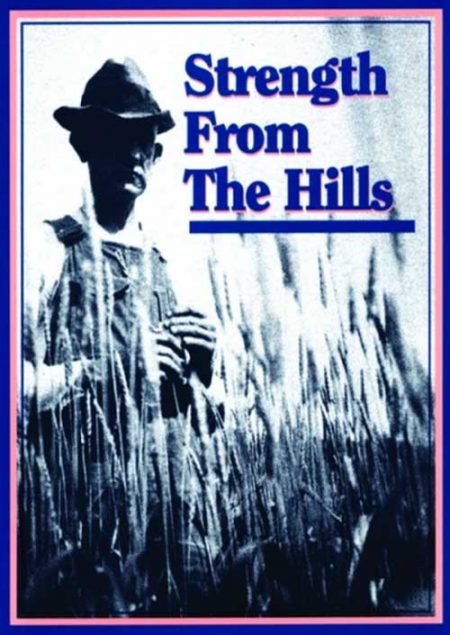 A biography of Jesse's father, Mitchell Stuart - a rural man who could not read or write. But Mick Stuart had learned the important things in life from the hills around him. He began his work before daylight, and stopped only when his family, his farm, and his animals were cared for. Jesse Stuart tells how his father taught him the unalterable values of right and wrong, love of family, and love of education. By Jesse Stuart
A biography of Jesse's father, Mitchell Stuart - a rural man who could not read or write. But Mick Stuart had learned the important things in life from the hills around him. He began his work before daylight, and stopped only when his family, his farm, and his animals were cared for. Jesse Stuart tells how his father taught him the unalterable values of right and wrong, love of family, and love of education. By Jesse Stuart -
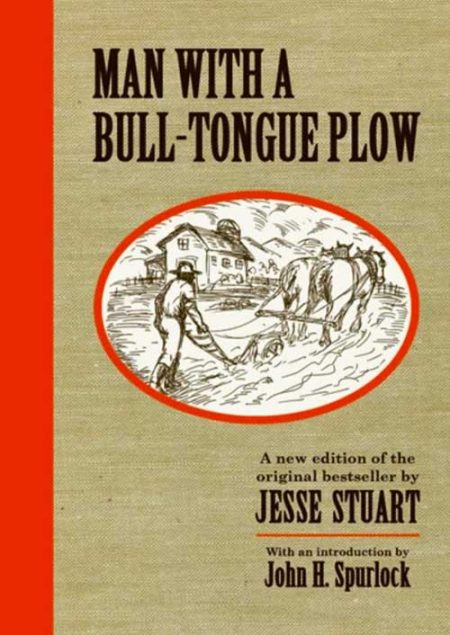 Originally published in 1934, this book was so successful that the first printing of the first edition sold out in less than a month! Man With a Bull-Tongue Plow is a collection of sonnets that Stuart weaves into a personal narrative describing the rural Kentucky life and events he knew so well. Packed with emotion, and sometimes harsh observations, the poetry in this book comes from the heart of a young man who was always full of enthusiasm. At this stage of his life, Jesse Stuart was bursting with pure expression and had not yet learned to polish his poetry in an effort to make it more palatable to a broader audience and Interestingly, that's exactly what made this volume so popular. It was nominated for a Pulitzer Prize and selected as both One of the 100 Best Books in America and One of the1000 Great Books of the World. An introduction by John H. Spurlock adds context and insight to Stuart's writing. HARDCOVER By Jesse Stuart
Originally published in 1934, this book was so successful that the first printing of the first edition sold out in less than a month! Man With a Bull-Tongue Plow is a collection of sonnets that Stuart weaves into a personal narrative describing the rural Kentucky life and events he knew so well. Packed with emotion, and sometimes harsh observations, the poetry in this book comes from the heart of a young man who was always full of enthusiasm. At this stage of his life, Jesse Stuart was bursting with pure expression and had not yet learned to polish his poetry in an effort to make it more palatable to a broader audience and Interestingly, that's exactly what made this volume so popular. It was nominated for a Pulitzer Prize and selected as both One of the 100 Best Books in America and One of the1000 Great Books of the World. An introduction by John H. Spurlock adds context and insight to Stuart's writing. HARDCOVER By Jesse Stuart -
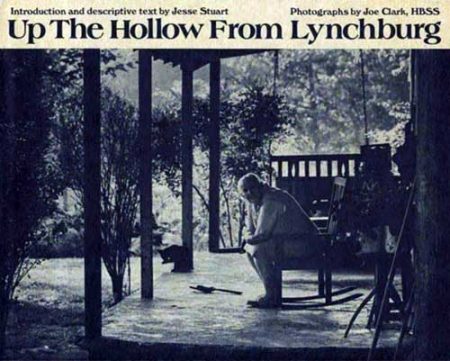 Jesse Stuart and Joe Clark's photographic essay of the town Lynchburg, located where the Blue Grass country meets the Cumberland Mountains of Tennessee. Known for the Jack Daniels distillery, the townspeople are loyal to their employer and to each other. But they are also "close-to-the-land" people who farm, raise livestock, and enjoy diversions which have nothing at all to do with the distillery. For the most part, it is their lives outside of working hours that Clark and Stuart have chosen to reflect. Photographs by Joe Clark Foreword by Jesse Stuart
Jesse Stuart and Joe Clark's photographic essay of the town Lynchburg, located where the Blue Grass country meets the Cumberland Mountains of Tennessee. Known for the Jack Daniels distillery, the townspeople are loyal to their employer and to each other. But they are also "close-to-the-land" people who farm, raise livestock, and enjoy diversions which have nothing at all to do with the distillery. For the most part, it is their lives outside of working hours that Clark and Stuart have chosen to reflect. Photographs by Joe Clark Foreword by Jesse Stuart -
Out of stock
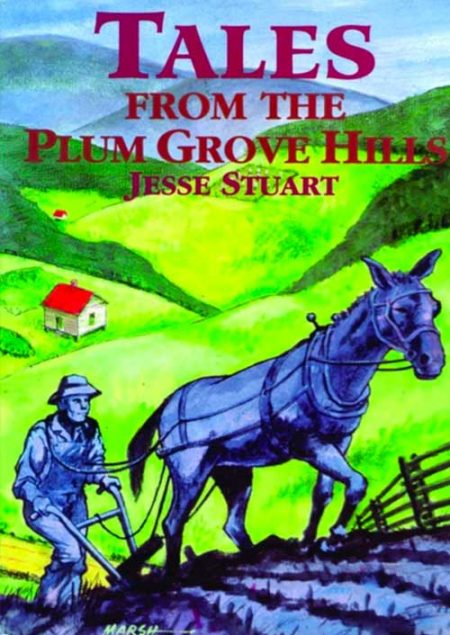 Jesse Stuart's honest, earthy writing about the southern hill folk he knows so well has made him one of America's foremost authors of fiction. Here are twenty of his best stories that spring up from the pungent soil of Kentucky, told in his plain but highly colorful style. Stories about the Stuart family and neighbors from his beloved W-Hollow, all packed with Kentucky characters of all sorts and sizes. By Jesse Stuart
Jesse Stuart's honest, earthy writing about the southern hill folk he knows so well has made him one of America's foremost authors of fiction. Here are twenty of his best stories that spring up from the pungent soil of Kentucky, told in his plain but highly colorful style. Stories about the Stuart family and neighbors from his beloved W-Hollow, all packed with Kentucky characters of all sorts and sizes. By Jesse Stuart -
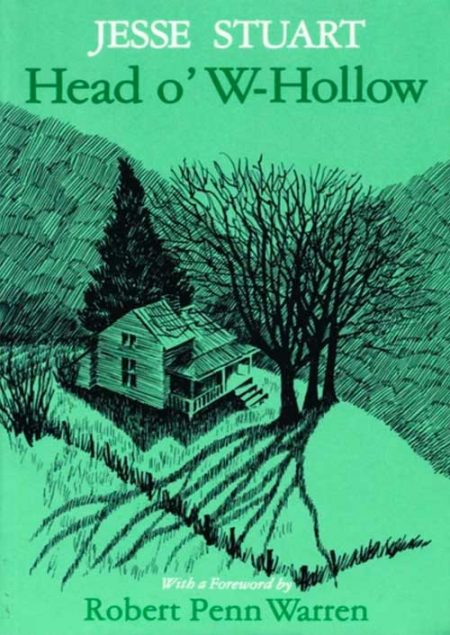 A unique and personal book bound for its own kind of immortality. Head o' W-Hollow has a permanent if modest historical value. Jesse Stuart has a "rattrap memory" for turns of speech, and he has given a socio-historical record of daily life in his remote world — now so much less remote and more changed. By Jesse Stuart REVIEWS "Stuart's first book of short stories remains haunting, powerful, and humorous." "A unique book, bound for its own kind of immortality." — Robert Penn Warren "The most honest writing that has ever been done about Kentucky mountain people." — The Nation
A unique and personal book bound for its own kind of immortality. Head o' W-Hollow has a permanent if modest historical value. Jesse Stuart has a "rattrap memory" for turns of speech, and he has given a socio-historical record of daily life in his remote world — now so much less remote and more changed. By Jesse Stuart REVIEWS "Stuart's first book of short stories remains haunting, powerful, and humorous." "A unique book, bound for its own kind of immortality." — Robert Penn Warren "The most honest writing that has ever been done about Kentucky mountain people." — The Nation -
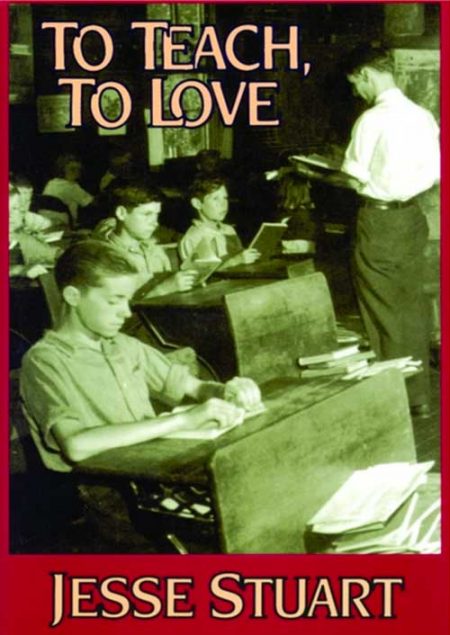 Stuart's autobiographical account of much of his educational career. This great Kentucky novelist, short story writer, poet, and teacher writes about his boyhood, his elementary school and high school experiences, and his days at Lincoln Memorial University. He tells of teaching in a one room rural schoolhouse, his experiences as a county school superintendent, and his stay as a teacher at American University in Cairo, Egypt. He explains what classroom methods worked best, and why, and speculates on what has gone wrong with American schools. By Jesse Stuart
Stuart's autobiographical account of much of his educational career. This great Kentucky novelist, short story writer, poet, and teacher writes about his boyhood, his elementary school and high school experiences, and his days at Lincoln Memorial University. He tells of teaching in a one room rural schoolhouse, his experiences as a county school superintendent, and his stay as a teacher at American University in Cairo, Egypt. He explains what classroom methods worked best, and why, and speculates on what has gone wrong with American schools. By Jesse Stuart -
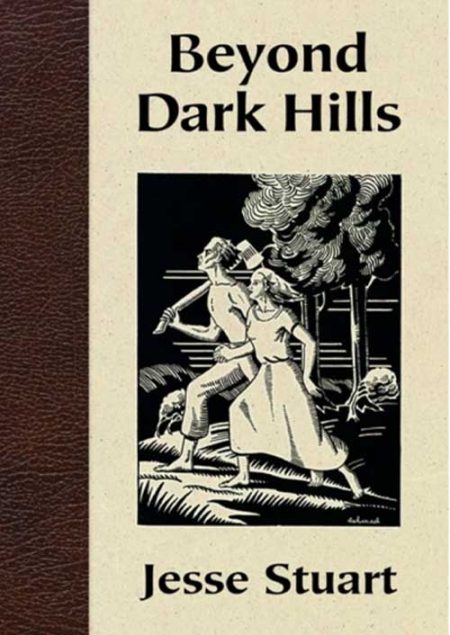 Jesse Stuart began this book in 1932 at Vanderbilt University as a paper for an English professor who asked his seminar students to turn in a maximum of 18 typewritten ages. In the 11 days allotted for the assignment, Stuart crammed 322 pages with the story of his young life. These ageless, universal experiences were told by a vibrant, precocious young man who became one of the most widely read American authors of the 20th century. For the young reader who has yet to experience the transition from childhood to adulthood, this book can be an inspiring guide. For older readers, it may be a beautiful trip down memory lane. HARDBACK By Jesse Stuart
Jesse Stuart began this book in 1932 at Vanderbilt University as a paper for an English professor who asked his seminar students to turn in a maximum of 18 typewritten ages. In the 11 days allotted for the assignment, Stuart crammed 322 pages with the story of his young life. These ageless, universal experiences were told by a vibrant, precocious young man who became one of the most widely read American authors of the 20th century. For the young reader who has yet to experience the transition from childhood to adulthood, this book can be an inspiring guide. For older readers, it may be a beautiful trip down memory lane. HARDBACK By Jesse Stuart -
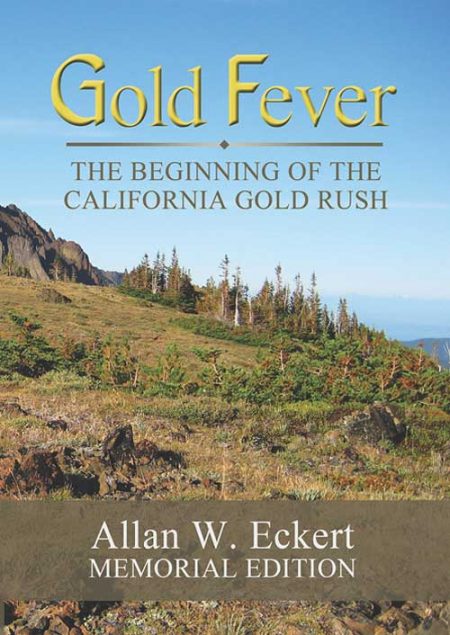 Winning of the West: Book 3 Gold Fever focuses upon the early phase of the Gold Rush era, beginning in early 1848 and concluding in September, 1849. Allan Eckert, a widely admired historian, relates in compelling detail the intriguing chain of developments in this great national obsession, including the following profoundly influential ones:
Winning of the West: Book 3 Gold Fever focuses upon the early phase of the Gold Rush era, beginning in early 1848 and concluding in September, 1849. Allan Eckert, a widely admired historian, relates in compelling detail the intriguing chain of developments in this great national obsession, including the following profoundly influential ones:- Gold's initial discovery
- The early-spring local gold rush
- The entire country's evolving response to the California gold rumors


